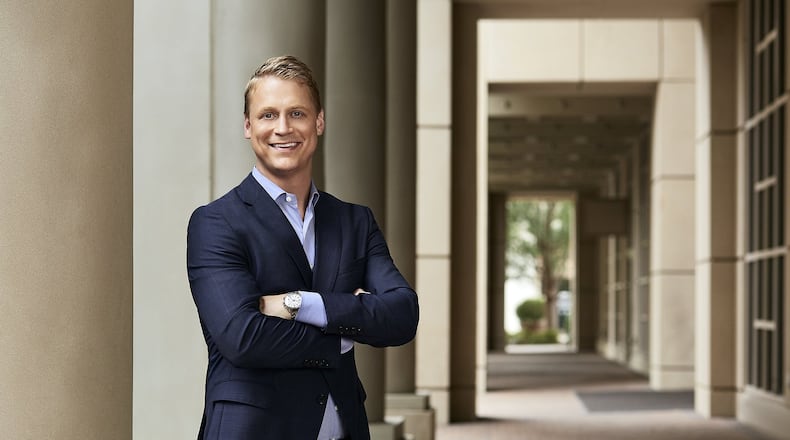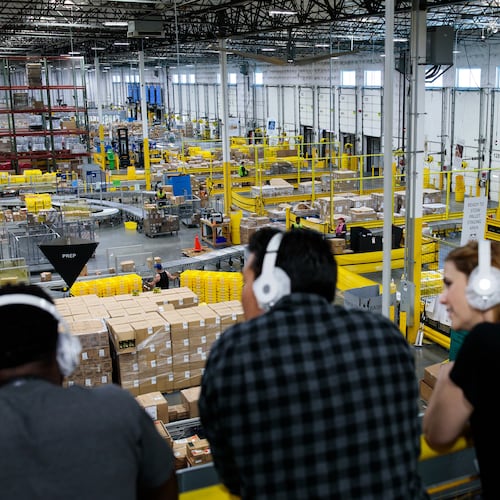If you were asked to give 2020 a grade, what would it be? I recently answered this question along with Clark Howard on a special economic roundtable on News 95.5 and AM 750 WSB hosted by Jay Black. An audio version of this will be playing throughout the holidays on News 95.5 and AM 750 WSB and can also be found on my “Money Matters With Wes Moss” podcast. It’s an important enough topic, though, that I wanted to visit here in The Atlanta Journal-Constitution.
We’re in the home stretch of 2020. Some of us are doing well and some are hanging on by a thread. Most of us are ready to lunge headfirst into a fresh new year. But before you write off the past 12 months as a total F, I’d like to point out there were a few A’s on the U.S. economic front — it hasn’t been a complete dumpster fire. Overall, I think we’ve averaged out to a solid C. We won’t all agree on the actions that were taken throughout the year, but each one has added up to a sum total much better than we could have imagined when all this began.
Big challenges. Bold moves. Remarkable results.
During an unprecedented lockdown, Congress passed the Coronavirus Aid, Relief and Economic Security (CARES) Act, many parts of which hit the mark in helping Americans replace or boost their income. The Paycheck Protection Program component didn’t fare as well initially, as banks tried to process more loans in a month than they’d ever done in a year. Once the pig in the python was digested, the program kept many small-business owners afloat and saved tens of millions of jobs.
As we hunkered down at home, consumer savings rose to an all-time high of 13.6%. Spending so much time at home — and on top of each other — made many of us realize we needed more space. The trifecta of high demand, low supply and record affordability has kept the construction and housing markets booming in most major cities, including Atlanta.
With jokes about tattoo parlors and bowling alleys aside, the controversial move by Gov. Brian Kemp to reopen Georgia’s economy immediately after lockdown paid off. Our COVID stats are no worse than the U.S. in totality, and our unemployment rate has stayed well below the national average. During the height of the pandemic, our gross domestic product (GDP) declined only 11.4%, as compared to the entire country at -14.5%.
The U.S. stock market staged a formidable recovery from the depths of 2020′s COVID bear market. It was bolstered by much better than expected earnings by many large, publicly traded companies in areas like health care, technology, online shopping and delivery, and full-service chain and fast-food restaurants. The Federal Reserve backstopped credit following the stock market tumble in March. The bold move gave investors peace of mind and healed the financial markets, setting off a rally for both stocks and bonds. It’s been a rollercoaster ride, but ironically just this month, the Dow hit new record highs and had its best month in 33 years.
Throughout the year, we’ve been inspired by entrepreneurs and small-business owners willing to put their heads down and fight. People who didn’t recoil into a shell. These are the people here in Georgia and across America who turned sit-down dining into delivery locations, and converted parking lots into patios and distilleries into hand-sanitizer refineries.
The good news from a macro standpoint is the best businesses — which we have a lot of here in Georgia — will continue to rise up, survive and thrive. As the economy improves, new businesses will crop up. For every party, convention, trip and graduation that was canceled in 2020, there will be a longer list of initiations and invitations in 2021. People will need their hair cut and wardrobes refreshed. If businesses large and small can endure the next few months while the vaccine is rolled out, the economic skies will open. As painful and sad as it is, “Darwinism” will still rule in capitalism. Those businesses that don’t adapt won’t survive.
Where do we stand today?
We certainly aren’t out of the woods yet. Right now, we’re experiencing a spike in COVID-19 cases and a dip in consumer confidence. One reason has been the long battle over a second stimulus package, and there’s been a slowdown in job growth, plus increasing lockdowns around the U.S.
On the local and national front, mom and pop restaurants are struggling to stay afloat. The National Restaurant Association reports that 110,000 restaurants have already closed either permanently or long-term in 2020. The travel and hospitality industry — which equates to $16 billion in Georgia — has taken a major hit and may need more government support in the near term.
There’s no arguing that we’ll pay a steep price for all this, as the trillions of dollars in stimulus is essentially borrowed money from the U.S. government. The consequences of our now even larger U.S. deficit will be a push for higher taxes and the potential for more significant inflation. I predict it will take about two to three years for the job market to fully recover. But as long as the U.S. dollar remains the world’s reserve currency, we can bear this.
Whether it’s a pandemic, a global financial crisis, war, political uncertainty, it doesn’t matter — to quote Warren Buffett, “Don’t bet against America.”
Bottom line
The worst is behind us. The next few months will take fortitude, but we have every reason to be optimistic about the future. While we’ve learned that the world will always surprise us, what doesn’t is the American spirit. Time and time again, it’s the most adaptable and productive economic force on the planet. It’s our people who’ve cared for us during our greatest time of need. It’s people who are responsible for the innovations that helped us adapt to working from home and the benefit of a more digitized, delivery-based economy. The COVID vaccine is within arm’s reach. It’s the golden ticket that will allow us to return to a new and improved retro-economy.
Even with the current COVID surge, we understand the virus much better now than we did in March. I don’t think we’ll see a second nationwide lockdown; and pent-up demand for all the activities we forwent in 2020 will help us rebuild businesses, jobs, and consumer confidence. Lots of things will survive — video conferencing, delivery services of every sort and compulsive hand washing. However, humans are social creatures. Just like the telegraph, telephone and email didn’t replace face-to-face connections, there’s no substitute for weddings, world travel, sporting events, hugs. Chris Stapleton concerts, here we come!
Wes Moss has been the host of “Money Matters” on News 95.5 and AM 750 WSB in Atlanta for more than 10 years now, and he does a live show from 9-11 a.m. Sundays. He is the chief investment strategist for Atlanta-based Capital Investment Advisors. For more information, go to wesmoss.com.
DISCLOSURE
This information is provided to you as a resource for informational purposes only and is not to be viewed as investment advice or recommendations. This information is being presented without consideration of the investment objectives, risk tolerance, or financial circumstances of any specific investor and might not be suitable for all investors. This information is not intended to, and should not, form a primary basis for any investment decision that you may make. Always consult your own legal, tax, or investment adviser before making any investment/tax/estate/financial planning considerations or decisions.
About the Author
Keep Reading
The Latest
Featured



